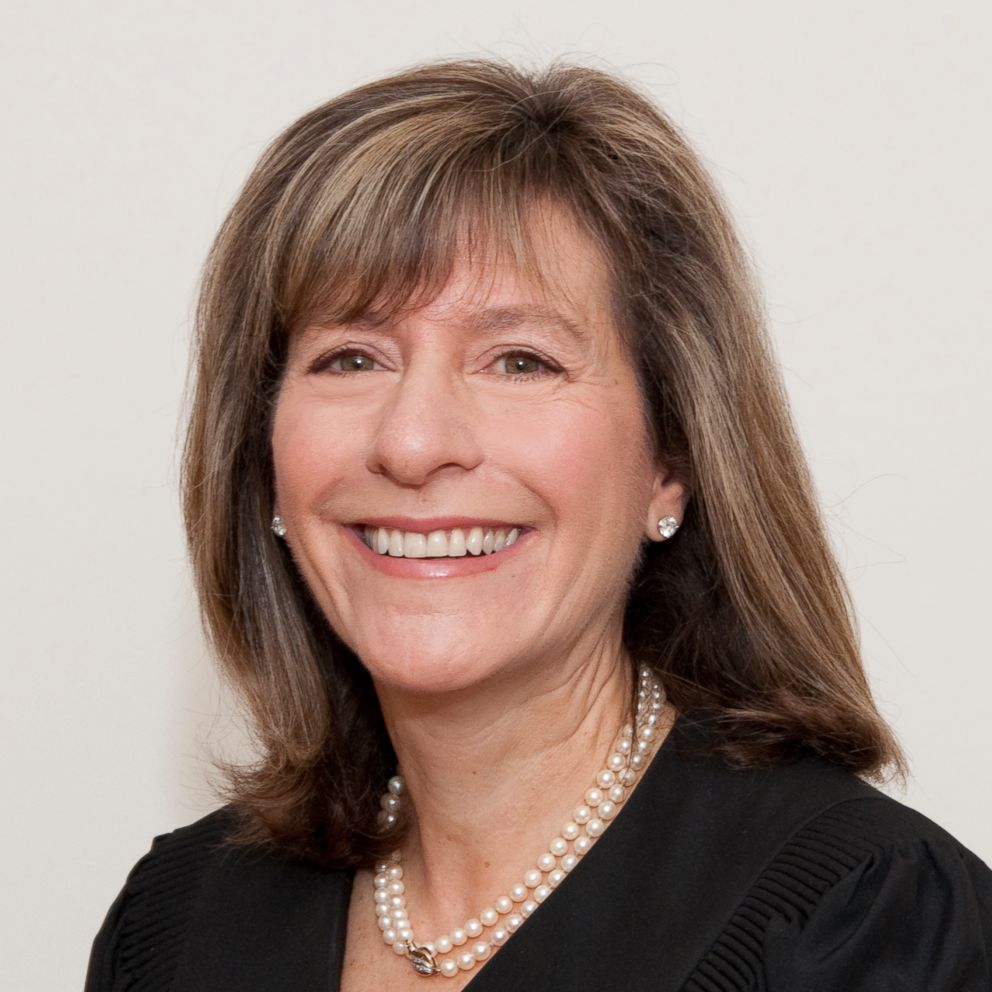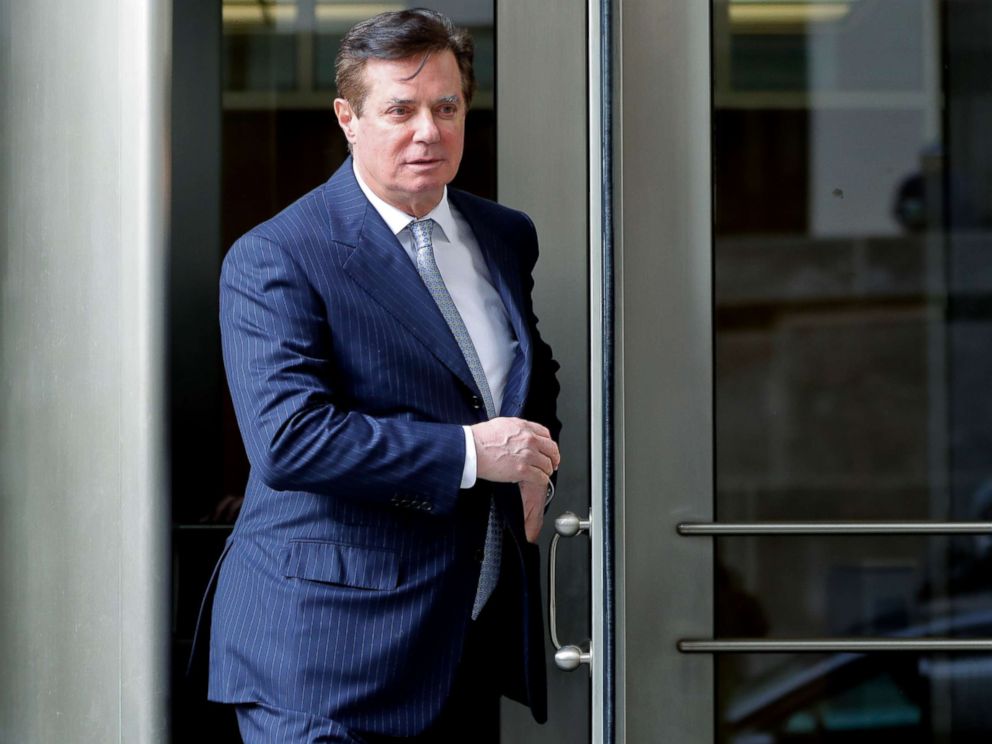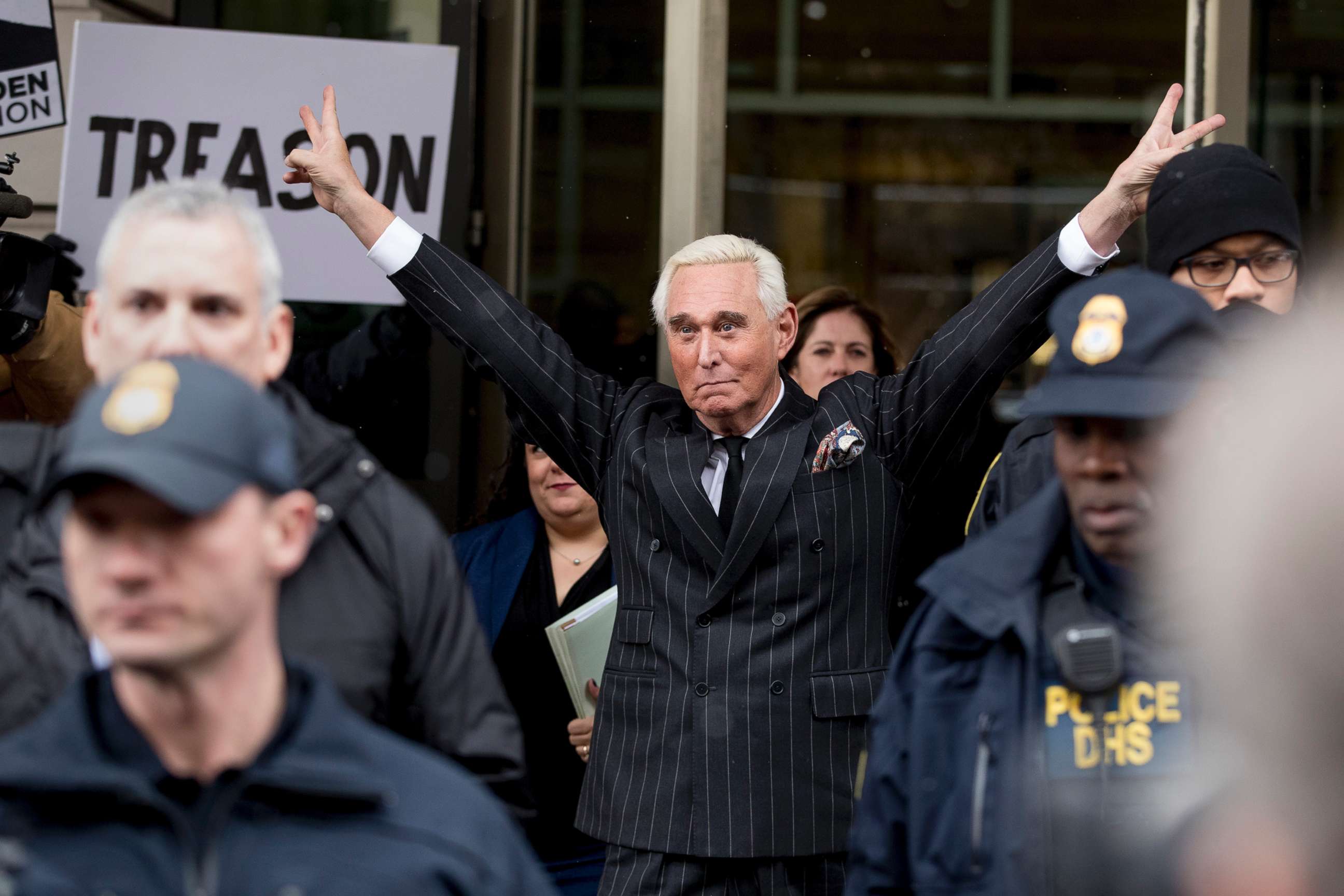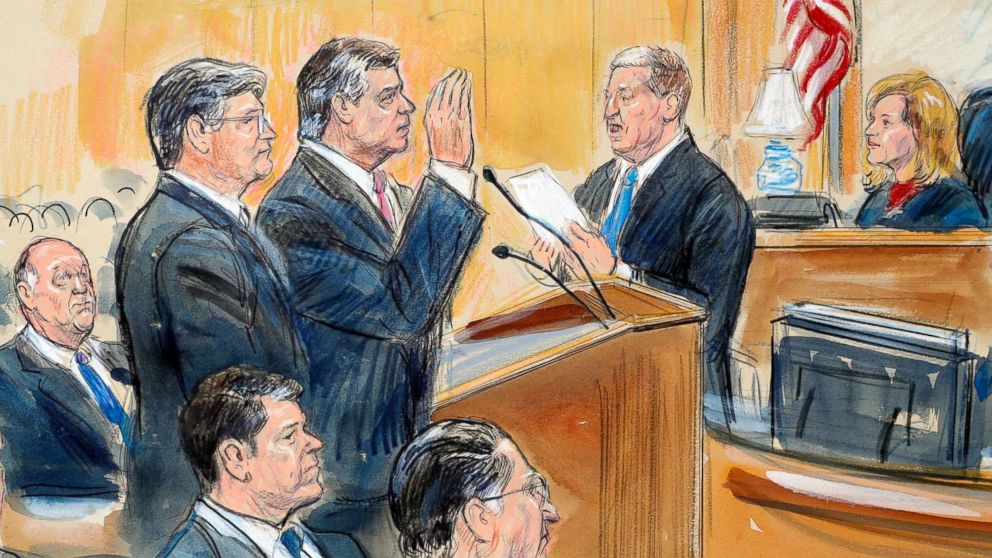For defendants in special counsel's probe, path to justice starts in Judge Amy Berman Jackson’s courtroom
When political showman Roger Stone flew from Florida to the nation's capital last month to stand trial on charges of lying to federal investigators, he was directed to an increasingly familiar destination in the massive federal judicial complex in Washington: Courtroom 3, where Judge Amy Berman Jackson presides.
Jackson has become a low-key but recurring fixture of the special counsel investigation -- six of the 12 cases brought by Robert Mueller's team have had matters brought before her. And Courtroom 3 has been home to some of the most headline-grabbing moments in the special counsel's two-year investigation, with Jackson, a 2011 Obama appointee, serving as an imposing presence.

She has been tough on defendants. When she imposed a 30-day jail sentence on Alexander van der Zwaan, a Dutch lawyer who pleaded guilty to lying to special counsel, she said she considered letting him off with a fine, but decided against it.
"We're not talking about a traffic ticket," she said. "This is lying in a federal criminal investigation."
Earlier this month, in a closed-door hearing in the case of former Trump campaign chairman Paul Manafort, Jackson dressed down defense attorney Kevin Downing for asking her to consider a comment a juror had made in a newspaper interview after his trial.
"It would be entirely inappropriate for me to rely on my understanding through the media of what took place in that trial," she said.
After a recess, it became clear the issue was not yet put to rest. Jackson had gone back to read the newspaper report anyway and wanted to let the lawyer know that he had interpreted incorrectly.
"Not that I would have relied on the newspaper anyway," she added.
The incident did not surprise defense attorneys who have come before her.
The Harvard Law graduate is, as attorney Shan Wu put it, "meticulous." Wu, who represented former Trump campaign adviser Richard Gates before he forged a cooperation deal with the special counsel, said lawyers are always at risk of running "running afoul in her meticulousness."
"If you're a defense attorney and your defenses are bull [explitive] you don't want to bring them in her courtroom," said Reid Weingarten, a defense attorney who represented Rev. Jesse Jackson Jr., whom Judge Jackson sentenced for a felony fraud count in connection to misuse of campaign funds in 2013.
But, Weingarten noted, that does not mean Jackson is "reflexively pro-government."
In the same closed-door proceeding where Downing faced scrutiny from the judge, prosecutors were repeatedly grilled by Jackson and asked to identify specific quotes from Manafort's testimony that could amount to a lie.
At one point, after prosecutor Andrew Weissmann tried to avoid providing specific examples to Jackson, she replied, "So you just don't want me to think about it, that's OK." Weissmann appeared to jump to the defensive by replying, "No. No. No. I'm going to answer your question."
Jackson was randomly assigned to Manafort’s case, as well as a case involving Russians who allegedly hacked tens of thousands of documents and emails from Democrats ahead of the 2016 election, according to Lisa Klem, the administrative assistant to the Chief Judge. Once those cases were assigned, Jackson’s courtroom became a landing pad for additional cases that were deemed related.
It’s routine for related cases to be routed to a single courtroom, especially instances where there might be overlapping evidence.
Jackson was appointed by a Democrat but was formerly married to a George W. Bush administration official. And she has seen criminal law practiced from both sides of the courtroom. She served as an Assistant United States Attorney for the District of Columbia before transitioning to almost 20 years of private practice as a white-collar defense attorney.
Both Wu and Weingarten said Jackson is very concerned about fairness in her courtroom. Wu said this may have served as a motivating factor in her decision last year to place gag orders on Manafort and Gates.

When placing the order on Manafort and Gates, Jackson said she wanted to ensure that arguments happened in her courtroom and "not on the courthouse steps." She's presently considering a similar order for Stone, whose attorneys argued against such a move in a filing last week.
At Stone's status conference in early February, Jackson said she would weigh Stone's First Amendment rights against concerns she had about the ability to seat an impartial jury for Stone. She cautioned him against treating his pre-trial process "like a book tour."

Jackson has yet to rule on this point, but she said that, should she issue a gag order, it would be limited in scope, and that both parties could still publicly discuss "foreign relations, immigration or Tom Brady."
No trial date has yet been set for Stone, and a jury was never seated for Manafort's DC case because he pleaded guilty to the charges he faced there. But from the onset, Jackson made it clear that should there have been a trial, she wanted a tight lid on the conduct in her courtroom.
"Mr. Downing, I just want to let you know that you are an expressive human being and how you feel about what is being said in the courtroom is a big part of your demeanor and your physical demeanor," Jackson said at a closed-door hearing related to Manafort's case early last year. "That doesn't upset me particularly, but it will upset me enormously if there's a jury in the box. So just keep that in mind."
Since taking the bench, Jackson has been no stranger to high profile cases. Last year, she struck down a wrongful death suit brought against former Secretary of State Hillary Clinton related to the Benghazi attacks. She's ruled on milestone cases related to the EPA and the Affordable Care Act. In addition to Stone, Manafort, Gates and Van der Zwaan, Jackson is also overseeing matters in the special counsel's case against Manafort's business associate, Konstantin Kilimnik, and against Russian hackers allegedly involved in the DNC breach.
During the Jesse Jackson Jr. sentencing, Weingarten said the judge seemed unaffected by the high profile nature of the proceedings.
"The courtroom was packed. The reverend was there. The Jesse Jackson family in the black community is royalty. It was a huge matter," Weingarten said. "She handled with discretion and intimacy and I was grateful for it."
That is a quality that will come in handy, he said, as more high profile cases in the special counsel investigation into Russian interference in the 2016 election head to Courtroom 3.
Editor's Note: This report has been updated to correct the description of how Jackson came to oversee so many cases brought by the special counsel’s office. Two of the cases were randomly assigned, with four more added to her docket because they may involve overlapping evidence.




